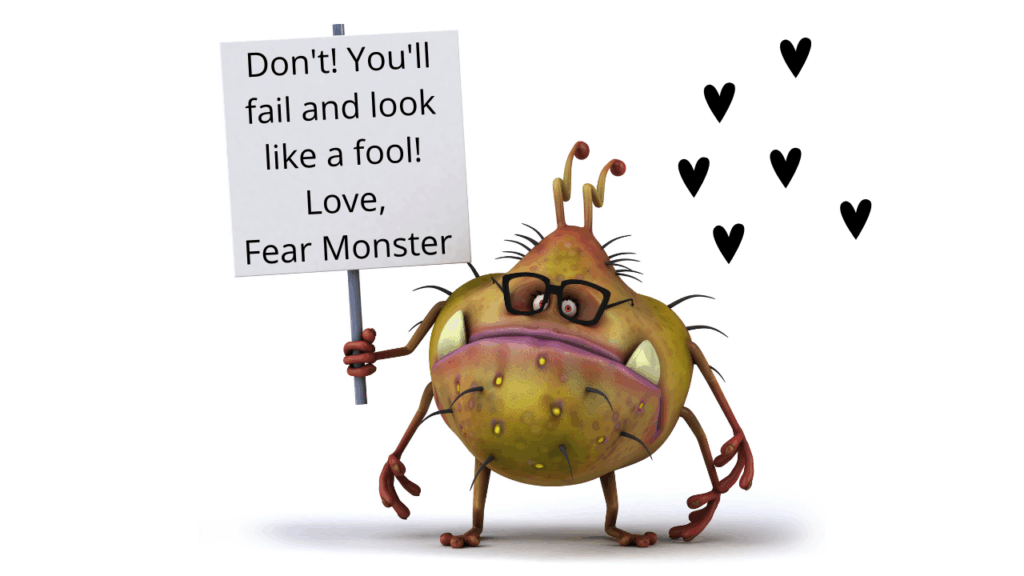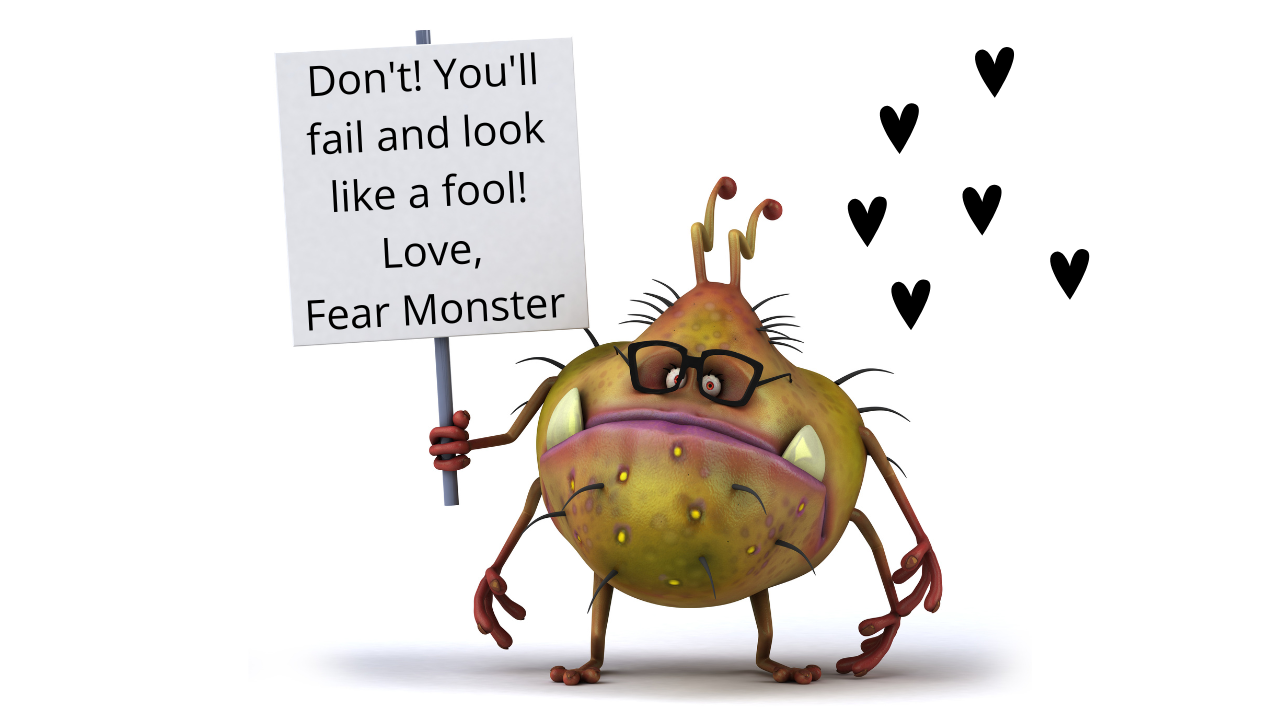
Unmasking the Monster Fear: Why We’re Afraid and How to Overcome It
The chilling grip of monster fear is a surprisingly common human experience, extending far beyond childhood nightmares. This primal anxiety taps into deep-seated evolutionary instincts and cultural narratives that shape our perception of the unknown and potentially dangerous. Understanding the roots of this fear is the first step toward managing it and reclaiming a sense of control. This article delves into the psychology behind monster fear, exploring its origins, manifestations, and practical strategies for overcoming it. Whether you’re a parent helping a child cope with nighttime anxieties or an adult grappling with lingering unease, understanding the nature of monster fear can be incredibly empowering.
The Evolutionary Roots of Monster Fear
Our ancestors faced genuine threats from predators and hostile environments. A healthy dose of fear was essential for survival. The concept of a “monster,” even in its most abstract form, often represents a concentration of these primal dangers: the unknown, the powerful, the unpredictable. This inherent fear of the unknown is a key component of monster fear. Anything that defies explanation or exists outside the realm of our understanding can trigger this anxiety. Think of the classic monsters – vampires, werewolves, zombies – all embodying transgressions of natural laws and societal norms. This transgression is often what fuels the monster fear.
The amygdala, a brain region responsible for processing emotions, especially fear, plays a crucial role. When confronted with a perceived threat, the amygdala triggers a cascade of physiological responses – increased heart rate, rapid breathing, heightened senses – preparing the body for fight or flight. Even the *idea* of a monster, if vividly imagined, can activate this fear response. This highlights the power of the mind in perpetuating monster fear, even in the absence of a real threat.
Cultural Narratives and Monster Fear
Beyond our inherent biology, cultural narratives significantly contribute to monster fear. From fairy tales to blockbuster movies, stories of monsters are ubiquitous. These narratives serve multiple purposes: they entertain, they teach moral lessons, and they reinforce societal values by illustrating the consequences of deviating from the norm. However, they can also inadvertently amplify monster fear, especially in children who may struggle to distinguish between fantasy and reality.
Consider the prevalence of boogeyman figures across different cultures. These shadowy entities, often used to frighten children into obedience, represent a generalized fear of the unknown and the potential for harm lurking in the darkness. Similarly, ghost stories and urban legends, passed down through generations, perpetuate the belief in supernatural threats and contribute to the overall atmosphere of monster fear. The way stories are told, the imagery used, and the emotional impact of these narratives all contribute to the intensity of the fear.
Manifestations of Monster Fear
Monster fear manifests in various ways, depending on age, personality, and individual experiences. In children, it often presents as nightmares, reluctance to be alone in the dark, or fear of specific locations or objects. They might insist on leaving a nightlight on, checking under the bed for monsters, or seeking constant reassurance from parents. [See also: How to Help Children Overcome Nighttime Fears] These behaviors are normal developmental phases for many children, but persistent and overwhelming monster fear can indicate underlying anxiety issues.
In adults, monster fear can take more subtle forms. It might manifest as a general sense of unease or anxiety, a heightened startle response, or difficulty relaxing in unfamiliar environments. Some adults may avoid certain types of media – horror movies, true crime documentaries – that trigger their monster fear. Others may experience intrusive thoughts or images of monstrous figures, leading to significant distress. The key difference between childhood and adult monster fear is the level of cognitive awareness. Adults are generally more aware of the irrationality of their fears, but that doesn’t necessarily make them easier to manage.
Differentiating Monster Fear from Phobias
While monster fear is a common experience, it’s important to distinguish it from specific phobias. A phobia is a persistent and excessive fear of a specific object, situation, or activity that significantly interferes with daily life. For example, coulrophobia (fear of clowns) or nyctophobia (fear of the dark) could be considered related to monster fear, but they are more focused and debilitating. [See also: Understanding and Treating Specific Phobias]
The distinction lies in the specificity and intensity of the fear response. Monster fear is often more generalized and less disruptive than a full-blown phobia. However, if the fear becomes overwhelming, persistent, and significantly impacts one’s ability to function, seeking professional help is crucial. A therapist can help identify the underlying causes of the fear and develop effective coping strategies.
Strategies for Overcoming Monster Fear
Overcoming monster fear requires a multi-faceted approach that addresses both the psychological and environmental factors contributing to the anxiety. Here are some practical strategies:
For Children:
- Validate their feelings: Acknowledge that their fear is real and understandable. Avoid dismissing their concerns as silly or irrational.
- Create a safe and comforting environment: Ensure their bedroom is a calming and secure space. Use a nightlight, play soothing music, or offer a favorite stuffed animal.
- Establish a bedtime routine: A consistent bedtime routine can help reduce anxiety and promote relaxation. Include calming activities like reading a story, taking a warm bath, or practicing deep breathing exercises.
- Challenge negative thoughts: Help them identify and challenge the negative thoughts fueling their monster fear. Ask them to describe the monster and then brainstorm ways to defeat it or make it less scary.
- Limit exposure to frightening media: Avoid exposing them to scary movies, TV shows, or video games that might exacerbate their fears.
- Use creative outlets: Encourage them to express their fears through drawing, writing, or storytelling. This can help them process their emotions and gain a sense of control.
- Monster spray: A simple spray bottle filled with water, labeled “monster spray,” can be surprisingly effective. The act of spraying the room can provide a sense of control and reassurance.
For Adults:
- Identify the root cause: Explore the underlying reasons for your monster fear. Is it related to past trauma, unresolved anxiety, or specific triggers?
- Challenge irrational thoughts: Recognize that your fear is likely based on irrational beliefs and distorted perceptions. Actively challenge these thoughts and replace them with more rational and realistic ones.
- Practice relaxation techniques: Engage in relaxation techniques such as deep breathing, meditation, or progressive muscle relaxation to reduce anxiety and promote a sense of calm.
- Exposure therapy: Gradually expose yourself to the things that trigger your monster fear in a safe and controlled environment. Start with less threatening stimuli and gradually work your way up to more challenging ones.
- Seek professional help: If your monster fear is significantly impacting your life, consider seeking professional help from a therapist or counselor. Cognitive-behavioral therapy (CBT) can be particularly effective in treating anxiety disorders.
- Limit caffeine and alcohol: Both caffeine and alcohol can exacerbate anxiety symptoms. Limit your intake, especially before bedtime.
- Improve sleep hygiene: Ensure you are getting enough sleep and maintaining a regular sleep schedule. Sleep deprivation can worsen anxiety and make you more susceptible to fear.
The Power of Understanding and Control
Monster fear, while often irrational, is a deeply rooted human experience. By understanding its origins, manifestations, and effective coping strategies, we can reclaim a sense of control and overcome the anxieties that plague us. Whether it’s helping a child conquer their nighttime fears or addressing lingering unease in adulthood, acknowledging and addressing monster fear is essential for promoting mental well-being. Taking proactive steps to manage these fears can lead to a more confident and peaceful existence. Remember, the most effective weapon against any monster, real or imagined, is knowledge and understanding.
Conclusion
Ultimately, conquering monster fear is about empowering ourselves and those around us to face the unknown with courage and resilience. By recognizing the psychological and cultural influences that shape our fears, and by employing effective coping mechanisms, we can transform the monsters under the bed into manageable anxieties. The journey to overcoming monster fear may require patience and persistence, but the rewards – a sense of peace, security, and control – are well worth the effort.

